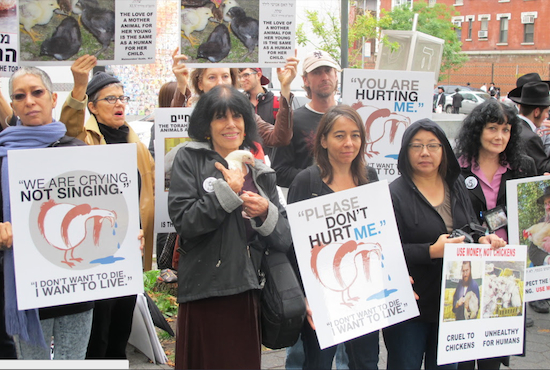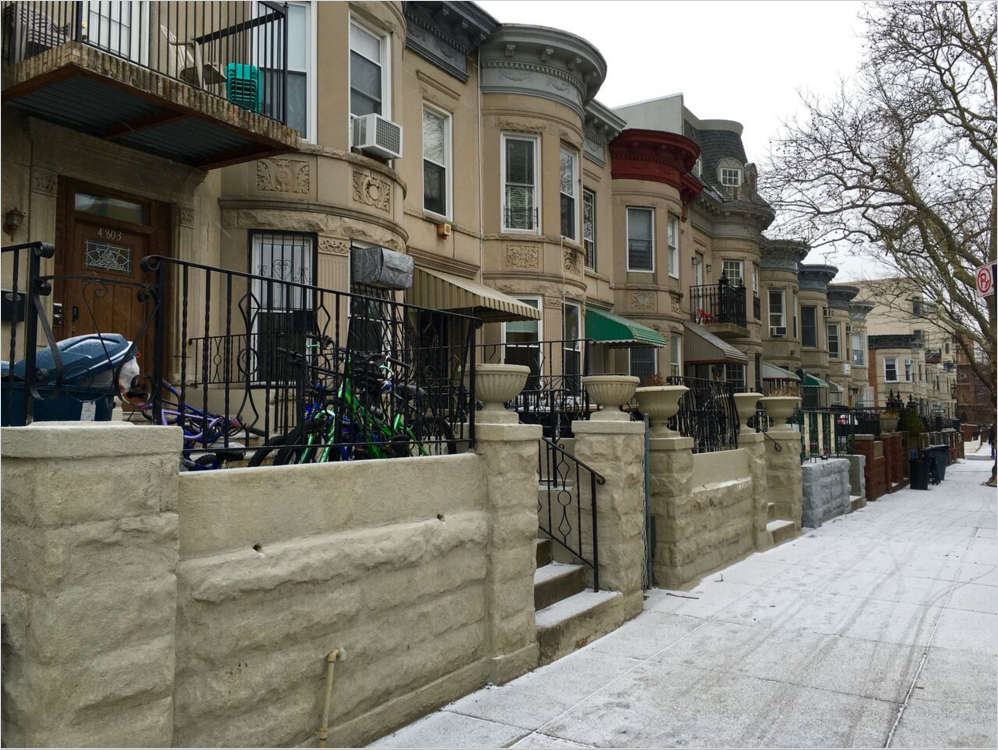Animal cruelty protests, legal actions continue over Jewish ‘Kapporos’ ritual

Protestors against Kapporos on Eastern Parkway.
Continuing protests and legal action over Kaporos — a holiday ritual involving the use of live chickens, practiced by some observant Jewish communities — took place in the courts and on the streets over the last few days.
On Eastern Parkway Wednesday morning, near the heart of the Chabad-Lubavitch community, a group called United Poultry Concerns protested the practice, which involves the raising of live chickens over participants’ heads to atone for their sins, then slaughtering the fowl.
“We are here to draw attention to the fact that chickens are needlessly being subjected to extreme cruelty by Kaporos practitioners, all while numerous health laws are being broken,” Karen Davis, president of United Poultry Concerns, told the crowd.
